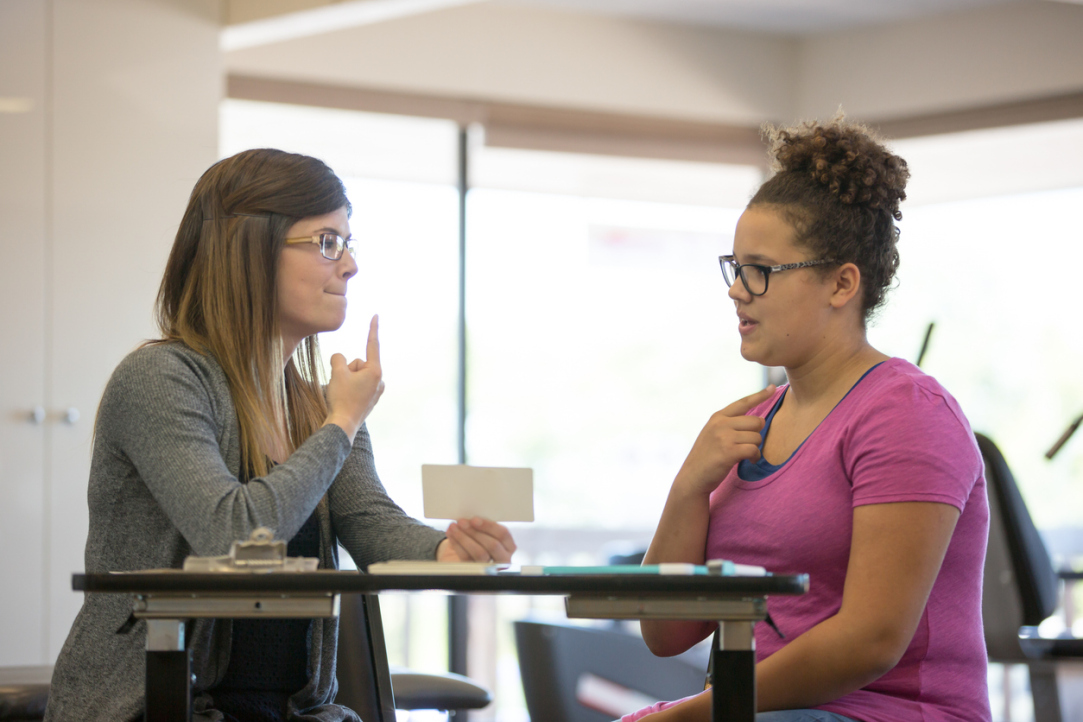HSE Neurolinguists Reveal What Makes Apps Effective for Aphasia Rehabilitation

Scientists at the HSE Centre for Language and Brain have identified key factors that increase the effectiveness of mobile and computer-based applications for aphasia rehabilitation. These key factors include automated feedback, a variety of tasks within the application, extended treatment duration, and ongoing interaction between the user and the clinician. The article has been published in NeuroRehabilitation.
Aphasia is a disorder characterised by complete or partial loss of the ability to speak and understand speech, caused by damage to areas of the brain responsible for language functions. The primary causes of aphasia include stroke, traumatic brain injury, inflammatory brain diseases, brain tumours, and dementia.
Aphasia significantly reduces a person's quality of life, prompting scientists to search for effective ways to restore the language functions impaired by the condition. With the widespread use of smartphones and tablets, a promising and rapidly evolving area of rehabilitation has emerged: serious games (SG) integrated into applications.
These are a special type of digital game designed not only for entertainment, but also to serve specific educational, training, or research purposes. In education, they support professional training, student learning, and foreign language acquisition. In healthcare, such games are used for patient rehabilitation.
Using a specially designed application, a person with aphasia can complete language training tasks and gradually recover their lost abilities. The effectiveness of such applications has already been demonstrated, but it remained unclear which specific tasks and features should be included, and how long users should engage with them to achieve optimal results.
Scientists from the HSE Centre for Language and Brain searched the PubMed and ScienceDirect databases and selected 18 studies which tested mobile and computer applications for aphasia rehabilitation.
The researchers focused specifically on cases where using an application produced remarkable results. For example, a patient who practiced naming 100 words improved to naming 150 words or was able to use the learned words not only in speech but also in writing. Sometimes, using serious games led to the development of related skills; for example, while training language functions, a person’s attention also improved.
In 14 of the 18 papers analysed (78%), patient use of the application resulted in positive effects. While most studies confirmed the effectiveness of the applications based on primary outcomes—ie improvement in the specific skills being trained—eight articles (44%) reported results that exceeded expectations, often showing that patients could apply the trained words in other contexts, such as writing. Additionally, two studies reported improvements in other higher cognitive functions.
The analysis revealed that the effectiveness of the applications was influenced by factors such as automated feedback, a diverse range of training tasks, extended treatment duration, and interaction between the patient and clinician. The latter is particularly important, as clinicians provide additional motivation and assess interim progress.
'At our centre, we are developing a game for aphasia rehabilitation. Reviewing existing studies will help us optimise its testing and incorporate the essential features needed for effective use. Many existing applications include few gamification elements and function more like digital workbooks with exercises. We aim to address this limitation to increase user engagement,' explains Georgii Gorshkov, Junior Research Fellow at the HSE Centre for Language and Brain.
The study was conducted with support from the Government of Moscow (Grant No. 1403-18/23).
See also:
HSE Psycholinguists Launch Digital Tool to Spot Dyslexia in Children
Specialists from HSE University's Centre for Language and Brain have introduced LexiMetr, a new digital tool for diagnosing dyslexia in primary school students. This is the first standardised application in Russia that enables fast and reliable assessment of children’s reading skills to identify dyslexia or the risk of developing it. The application is available on the RuStore platform and runs on Android tablets.
HSE Scientists Optimise Training of Generative Flow Networks
Researchers at the HSE Faculty of Computer Science have optimised the training method for generative flow neural networks to handle unstructured tasks, which could make the search for new drugs more efficient. The results of their work were presented at ICLR 2025, one of the world’s leading conferences on machine learning. The paper is available at Arxiv.org.
Physicists Propose New Mechanism to Enhance Superconductivity with 'Quantum Glue'
A team of researchers, including scientists from HSE MIEM, has demonstrated that defects in a material can enhance, rather than hinder, superconductivity. This occurs through interaction between defective and cleaner regions, which creates a 'quantum glue'—a uniform component that binds distinct superconducting regions into a single network. Calculations confirm that this mechanism could aid in developing superconductors that operate at higher temperatures. The study has been published in Communications Physics.
Neural Network Trained to Predict Crises in Russian Stock Market
Economists from HSE University have developed a neural network model that can predict the onset of a short-term stock market crisis with over 83% accuracy, one day in advance. The model performs well even on complex, imbalanced data and incorporates not only economic indicators but also investor sentiment. The paper by Tamara Teplova, Maksim Fayzulin, and Aleksei Kurkin from the Centre for Financial Research and Data Analytics at the HSE Faculty of Economic Sciences has been published in Socio-Economic Planning Sciences.
Mistakes That Explain Everything: Scientists Discuss the Future of Psycholinguistics
Today, global linguistics is undergoing a ‘multilingual revolution.’ The era of English-language dominance in the cognitive sciences is drawing to a close as researchers increasingly turn their attention to the diversity of world languages. Moreover, multilingualism is shifting from an exotic phenomenon to the norm—a change that is transforming our understanding of human cognitive abilities. The future of experimental linguistics was the focus of a recent discussion at HSE University.
Larger Groups of Students Use AI More Effectively in Learning
Researchers at the Institute of Education and the Faculty of Economic Sciences at HSE University have studied what factors determine the success of student group projects when they are completed with the help of artificial intelligence (AI). Their findings suggest that, in addition to the knowledge level of the team members, the size of the group also plays a significant role—the larger it is, the more efficient the process becomes. The study was published in Innovations in Education and Teaching International.
New Models for Studying Diseases: From Petri Dishes to Organs-on-a-Chip
Biologists from HSE University, in collaboration with researchers from the Kulakov National Medical Research Centre for Obstetrics, Gynecology, and Perinatology, have used advanced microfluidic technologies to study preeclampsia—one of the most dangerous pregnancy complications, posing serious risks to the life and health of both mother and child. In a paper published in BioChip Journal, the researchers review modern cellular models—including advanced placenta-on-a-chip technologies—that offer deeper insights into the mechanisms of the disorder and support the development of effective treatments.
Using Two Cryptocurrencies Enhances Volatility Forecasting
Researchers from the HSE Faculty of Economic Sciences have found that Bitcoin price volatility can be effectively predicted using Ethereum, the second-most popular cryptocurrency. Incorporating Ethereum into a predictive model reduces the forecast error to 23%, outperforming neural networks and other complex algorithms. The article has been published in Applied Econometrics.
Administrative Staff Are Crucial to University Efficiency—But Only in Teaching-Oriented Institutions
An international team of researchers, including scholars from HSE University, has analysed how the number of non-academic staff affects a university’s performance. The study found that the outcome depends on the institution’s profile: in research universities, the share of administrative and support staff has no effect on efficiency, whereas in teaching-oriented universities, there is a positive correlation. The findings have been published in Applied Economics.
Advancing Personalised Therapy for More Effective Cancer Treatment
Researchers from the International Laboratory of Microphysiological Systems at HSE University's Faculty of Biology and Biotechnology are developing methods to reduce tumour cell resistance to drugs and to create more effective, personalised cancer treatments. In this interview with the HSE News Service, Diana Maltseva, Head of the Laboratory, talks about their work.



